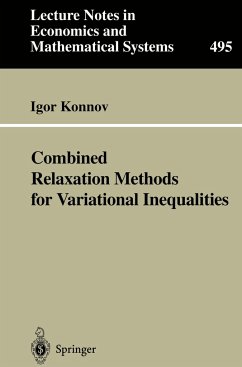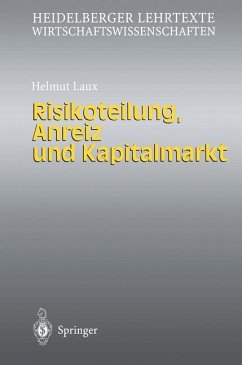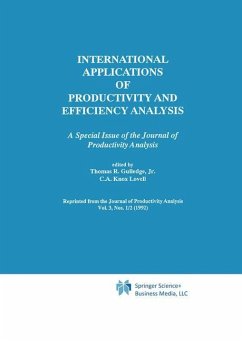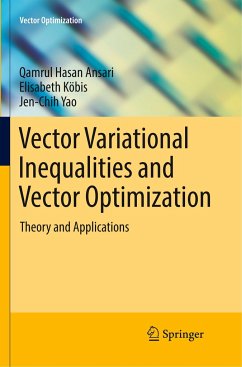
Projected Dynamical Systems and Variational Inequalities with Applications
Versandkostenfrei!
Versandfertig in 1-2 Wochen
115,99 €
inkl. MwSt.
Weitere Ausgaben:

PAYBACK Punkte
58 °P sammeln!
Equilibrium is a concept used in operations research and economics to understand the interplay of factors and problems arising from competitive systems in the economic world. The problems in this area are large and complex and have involved a variety of mathematical methodologies. In this monograph, the authors have widened the scope of theoretical work with a new approach, `projected dynamical systems theory', to previous work in variational inequality theory. While most classical work in this area is static, the introduction to the theory of projected dynamical systems will allow many real-...
Equilibrium is a concept used in operations research and economics to understand the interplay of factors and problems arising from competitive systems in the economic world. The problems in this area are large and complex and have involved a variety of mathematical methodologies.
In this monograph, the authors have widened the scope of theoretical work with a new approach, `projected dynamical systems theory', to previous work in variational inequality theory. While most classical work in this area is static, the introduction to the theory of projected dynamical systems will allow many real-life dynamic situations and problems to be handled and modeled. This monograph includes:
In this monograph, the authors have widened the scope of theoretical work with a new approach, `projected dynamical systems theory', to previous work in variational inequality theory. While most classical work in this area is static, the introduction to the theory of projected dynamical systems will allow many real-life dynamic situations and problems to be handled and modeled. This monograph includes:
- a new theoretical approach, `projected dynamical system', which allows the researcher to model real-life situations more accurately;
- new mathematical methods allowing researchers to combine other theoretical approaches with the projected dynamical systems approach;
- a framework in which research can adequately model natural, financial and human (real life) situations in competitive equilibrium problems;
- the computational and numerical methods for the implementation of the methods and theory discussed in the book;
- stability analysis, algorithms and computational procedures are offered for each set of applications.














